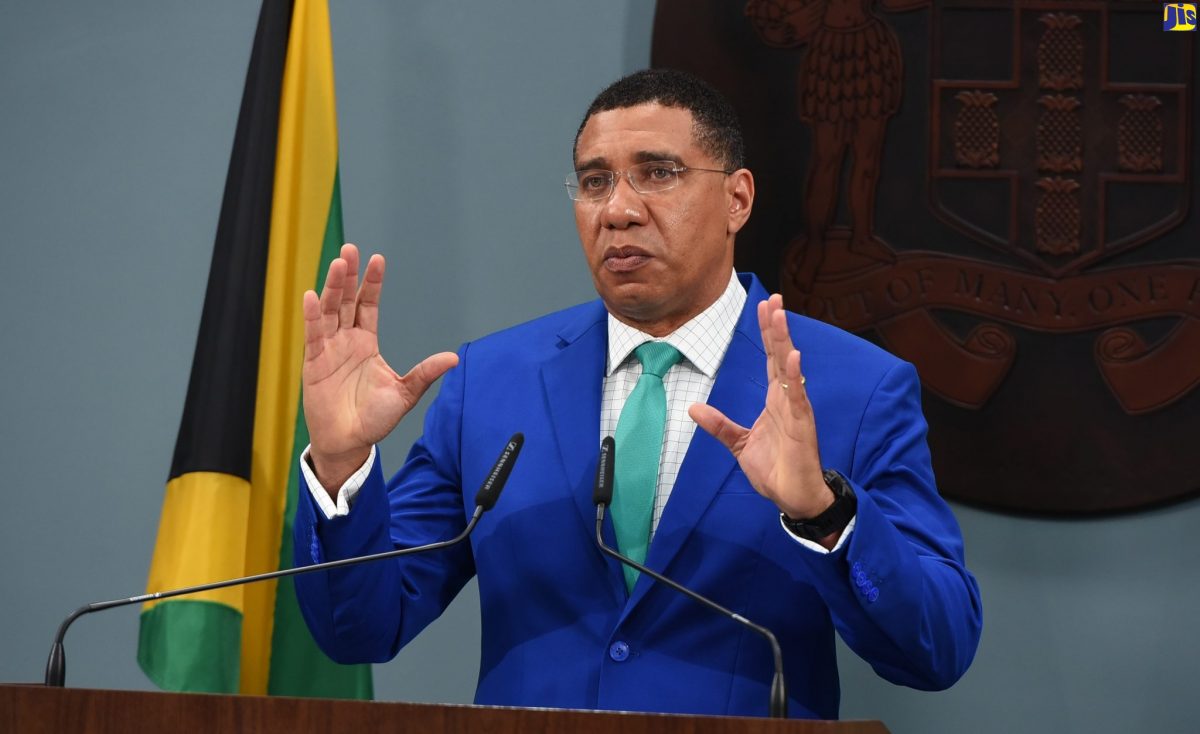KINGSTON, (Reuters) – Jamaican Prime Minister Andrew Holness today declared a state of public emergency in parts of the capital Kingston and in some central and western parishes in an attempt to control rising crime linked to gang violence.
States of emergency give authorities increased powers, including the ability to search buildings and carry out arrests without warrants. Today’s measures apply to areas that include popular tourist destinations such as Montego Bay.
“We have seen an increase in criminal activities in these areas and a threat to property and in some instances public disorder,” Holness said in a televised address.
“What we are seeing with gang activities in these areas is cause for grave concern,” he added.
Holness predicted an increase in murders over the next several weeks with the onset of the holiday season, when violent crime typically spikes.
Commissioner of Police Antony Anderson today said 1,360 murders were registered in Jamaica between Jan 1 and Nov. 13, an increase of 6.8% over the same period in 2021.
Gang violence was the reason for 71% of those murders, he said.
Rights groups have challenged detentions carried out during states of emergency.
Jamaica’s Supreme Court this year said authorities violated the rights of a man who said he was arbitrarily arrested and detained for months without trial during a state of emergency.
Jamaica, which has one of the region’s highest homicide rates, is seeking to crack down on gangs through laws that target organized crime and illegal guns.










